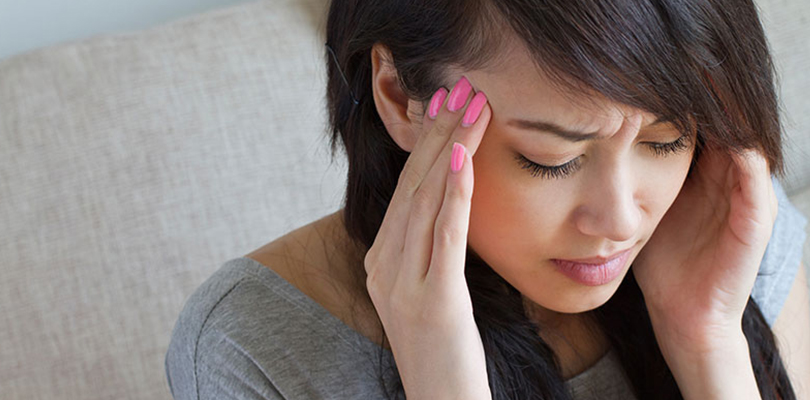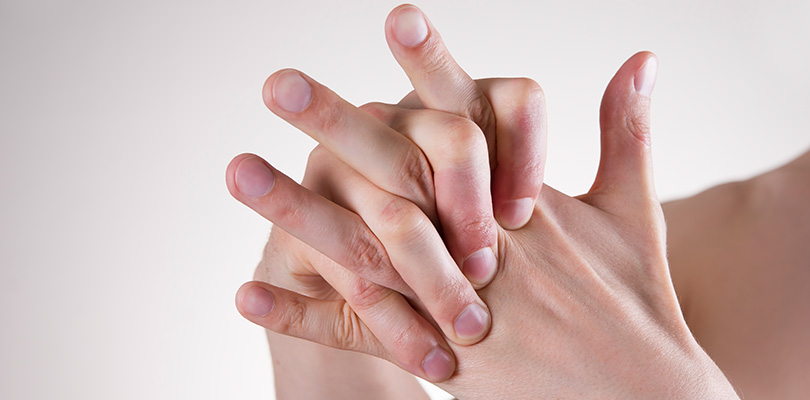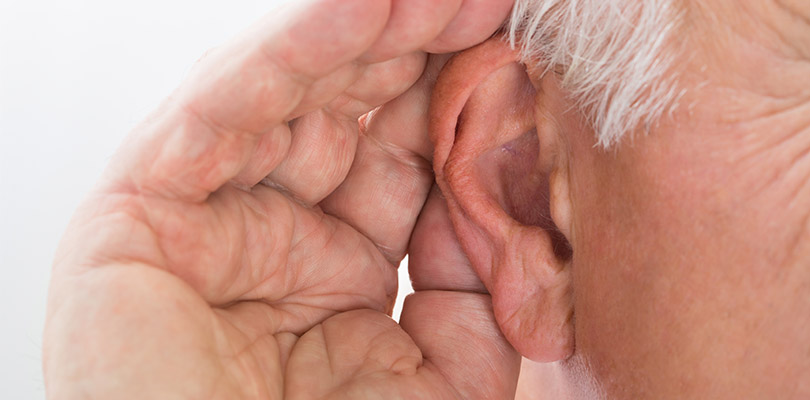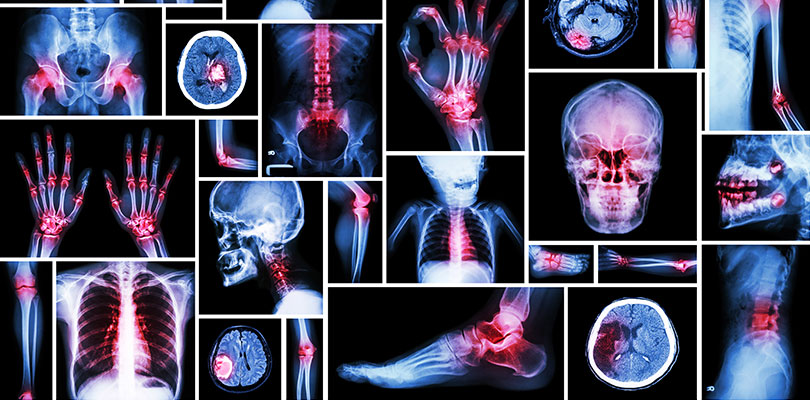Photo Credit: 9nong / iStockphoto.com
Type of Headache: Which One Do I Have?
Headaches are common afflictions, which have many different causes.
In order to get the most effective relief and treatment, you must first identify the type of headache you are suffering from.
For example, if you have a sinus headache, you may need to take steps to relieve congestion, while those actions would be totally ineffective if you are suffering from a headache brought on by stress.
Causes of Headaches
While most headaches are transient and go away without intervention or by simply taking an over-the-counter pain reliever, millions of people suffer from chronic, debilitating headaches.
You may experience a headache if you contract influenza or do not get enough sleep, but headaches are often signs of underlying, diverse health problems. People who suffer from depression experience headaches more often than individuals who do not. Common types of chronic headaches include migraines, cluster, sinus, and stress headaches.
Headaches can also be signs of serious, life-threatening health conditions, including stroke, hypertension, low blood sugar, or cancer.
If you suddenly develop a severe headache unlike any other you have previously experienced, seek emergency medical attention. Consult with your healthcare provider for diagnosis and treatment if chronic or recurrent headaches do not respond to home remedies.
Evaluation of Headaches
Whether you choose to determine the cause of your headaches independently or with the assistance of a healthcare expert, the history-taking process is the same.
Consider the following questions yourself, or be prepared to answer these types of questions when you meet with your healthcare provider. I recommend that you document your answers to these questions, so if you do consult with a healthcare provider, you will have the information you need at your fingertips. If you document the characteristics of your headaches carefully, you may be able to identify triggers and take steps to prevent future headaches. You will also be able to evaluate the effectiveness of treatments.
Questions to Ask
- What do your headaches feel like? Are they sharp, dull, or throbbing, or do they have other qualities?
- How long do your headaches last? Are they constant or intermittent?
- What part of your head is affected?
- Is there a pattern related to when your headaches occur? For example, if you are a female, are they related to your menstrual cycle? Do your headaches occur at particular times of the day or during specific seasons? Are you more likely to experience headaches when you are in particular environments, interact with specific individuals, or perform certain tasks?
- Do other family members experience headaches? Do headaches run in your family?
- When did you first begin experiencing headaches?
- What makes your headaches worse?
- Do you experience other symptoms while you have headaches?
- What relieves your headaches?
- Is your pain level constant or variable when you have headaches? Evaluate your pain level on a scale of 0-10. Assume that 0 means no pain and 10 represents the worst pain that you can imagine.
The Most Common Headaches: Stress Headaches
With the pace of life these days it is no wonder that stress headaches are rampant. Lack of sleep, eating on the run, and day-to-day worries create stress headaches for many of us. If you have a stress headache, you may feel irritable, your stomach may be tied up in knots, and you may feel exhausted.
Stress headaches typically feel like a tight band around the forehead. Your neck muscles may be tense and sore and the pain may be throbbing.
Many people wonder if cracking your knuckles can cause arthritis, thankfully it does not. However, there still are a few reasons to try and stop the habit.
Preventing Stress Headaches
Prevention of stress is the most effective remedy for stress headaches. Listen to the message that your body is giving you. You likely need to make some lifestyle changes if you suffer from recurrent stress headaches. Here are some strategies to help prevent stress headaches.
- Make sure you are eating a healthy diet and not consuming too much alcohol or caffeine. Consume foods that contain calcium, magnesium, and B vitamins. Whole grains and fresh produce are good sources of nutrients which support the health of your nervous system.
- Take care to drink enough water each day. Mild dehydration can contribute to head pain.
- Learn and practice techniques that relieve stress.
- Consider taking a walk outside every day.
- Make sure that you are getting to bed a reasonable hour.
- Delegate tasks when possible. Be sure that you are not overly committing yourself to activities and responsibilities.
- Evaluate your relationships. Make sure that you are in relationships which nurture you.
- Make time to care for yourself each day.
- Pay attention to how you breathe when you are stressed. Some of us unknowingly hyperventilate, which only serves to increase tension.
- Consciously relax your muscles throughout the day.
Implement one or several of these lifestyle strategies into your routine and see if your headaches become less frequent and intense.
Relieve Stress Headache Pain Naturally
Essential oils and herbs offer remarkable benefits for sufferers of stress headaches. Here are some tips for relieving headaches with herbs and natural remedies.
- Enjoy a soak in a fragrant herbal bath. Add lavender, rose, marjoram, or jasmine flowers to your bath. Simply suspend them in a tied cloth under the faucet.
- Epsom salt baths are outstanding for stress relief. Epsom salts contain the calming element magnesium.
- Add few drops of your favorite essential oils to your bath. It is important to use pure essential oils and herbs as synthetic fragrances may make your headaches worse.
- Make a hot or cold compress out of chamomile or mint tea. Apply the compress to the back of your neck or forehead.
- Enjoy herbal teas as beverages regularly. Passionflower, valerian, skullcap, and milky oats nourish and soothe the nerves.
Is It a Migraine?
What's the difference between a migraine vs headache?
Migraine headaches may linger for several days. They are often precipitated by hormonal changes, stress, foods, alcohol, and bright light. Migraines may be accompanied by nausea and vomiting and they tend to run in families.
If you suffer from migraines, learn to identify triggers. Foods that often precipitate migraines include processed meats, cheese, chocolate and red wine. You may be able to reduce the frequency and intensity of migraines by using the herb feverfew on a regular basis. I find feverfew minimally useful for relieving migraines should they occur, however, the herb is very helpful for prevention.
For acute migraine episodes, you may find that taking 2 grams of vitamin C as soon as a headache begins relieves symptoms. Over-the-counter and prescription analgesics may be needed.
If you have migraine headaches and do not obtain relief with home remedies, consult with your healthcare provider. Several types of medication and treatments are available which reduce suffering.
It can be difficult to know how to help someone with migraines but many alternative therapies are effective. Acupuncture, meditation, yoga, and biofeedback are just a few of the options available.
Sinus Headaches Are Often Seasonal in Nature
Headaches accompanied by nasal congestion, runny nose, or tenderness in the sinus region are often sinus headaches. Your face, ears, or forehead may hurt. You are more likely to suffer from sinus headaches if you have a history of allergies.
Try taking hot showers or applying hot or cold compresses to your sinus area in order to relieve sinus headaches. My favorite remedy for sinus headaches is the much-maligned herb goldenrod. It often provides a headache and congestion relief within 20 minutes.
Nettles, local bee pollen, and coenzyme Q10 supplementation can be employed to prevent sinus headaches from occurring. These supplements must be used consistently for a few months prior to the season when you experience sinus headaches in order to be most effective. For example, if you suffer from sinus headaches in the autumn, start taking the supplements by mid-summer.
Mediterranean, elimination, and rotation diets may help to reduce sensitivities that precipitate sinus headaches.
Conclusion
While finding the cause of your headaches takes time and effort, the rewards will be well worth it: you will experience fewer headaches, and should a headache arise, you will have the proper tools available to relieve your suffering quickly.







